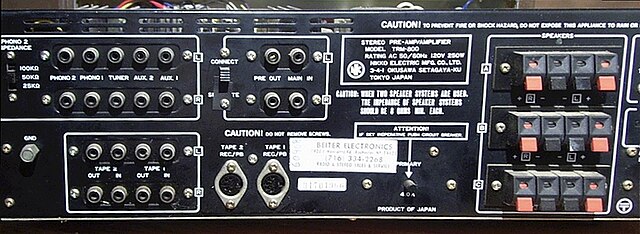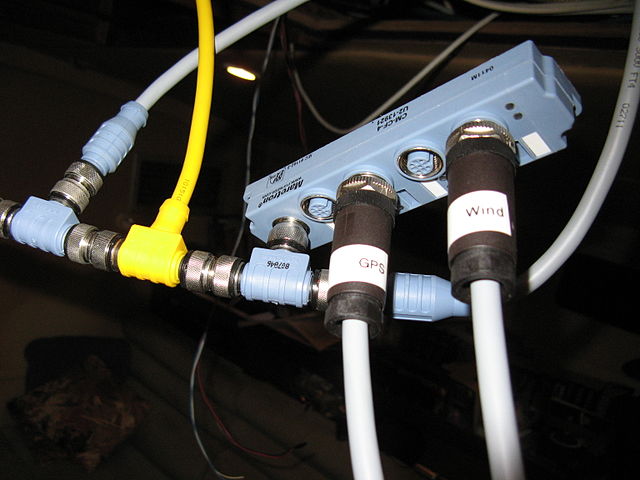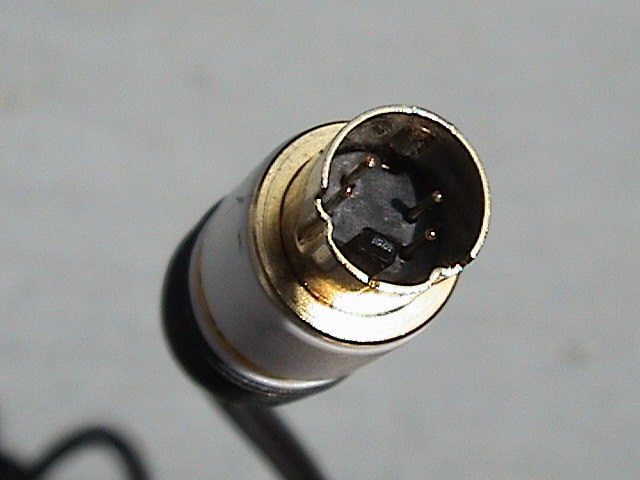A banana connector is a single-wire electrical connector used for joining wires to equipment. The term 4 mm connector is also used, especially in Europe, although not all banana connectors will mate with 4 mm parts, and 2 mm banana connectors exist. Various styles of banana plug contacts exist, all based on the concept of spring metal applying outward force into the unsprung cylindrical jack to produce a snug fit with good electrical conductivity. Common types include: a solid pin split lengthwise and splayed slightly, a tip of four leaf springs, a cylinder with a single leaf spring on one side, a bundle of stiff wire, a central pin surrounded by a multiple-slit cylinder with a central bulge, or simple sheet spring metal rolled into a nearly complete cylinder. The plugs are frequently used to terminate patch cords for electronic test equipment such as laboratory power supply units, while sheathed banana plugs are common on multimeter probe leads.

Loudspeaker-style banana plugs connected to a loudspeaker
Double-stackable banana plugs for junction into two additional parallel circuits.
Banana plugs with the curved spring visible
Adapter between a female BNC connector and a pair of banana plugs
Components of an electrical circuit are electrically connected if an electric current can run between them through an electrical conductor. An electrical connector is an electromechanical device used to create an electrical connection between parts of an electrical circuit, or between different electrical circuits, thereby joining them into a larger circuit.
This rear panel of an integrated amplifier features a variety of electrical connectors
Connectors on the back of a 2018 computer
NMEA 2000 cabling using M12 connectors
A 4-pin Mini-DIN S-Video cable, with notches and a rectangular alignment pin








